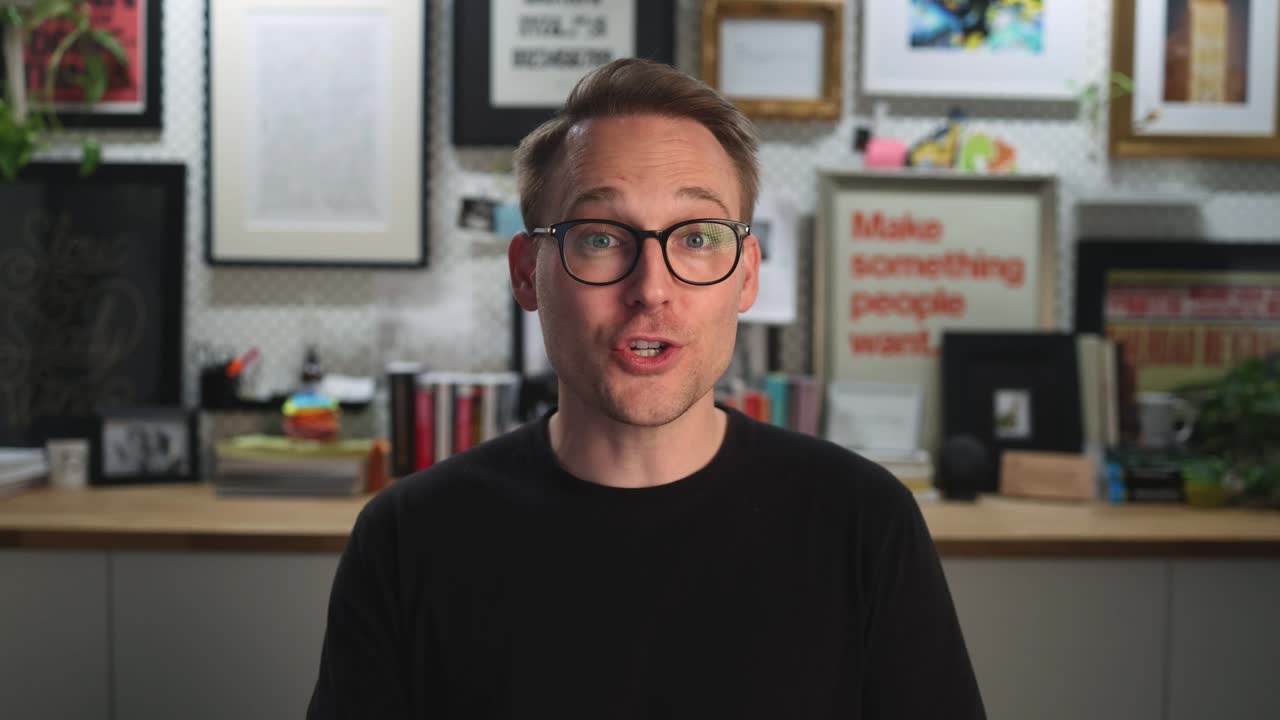Summary
Video Transcript
Starting with editing
It’s time to dive into editing! Grab your headphones, and let's go through the editing workflow with DaVinci Resolve. This guide will help you learn how to cut clips quickly and efficiently by utilizing features like face cam and keyboard shortcuts.
Why use a face cam?
Using a face cam allows you to control the visibility on-screen, turning it on or off when needed without needing a second editing pass. By recording a face cam as you screencast, you can seamlessly integrate live reactions or explanations into your video.
Initial clip adjustments
Start by identifying sections to be cut out. For instance, if you have a beginning section that needs trimming, use your keyboard shortcut to make the cut—press the one key to trim from the start to the playhead. This allows for clean and precise editing from the get-go.
Efficient playback for editing
When dealing with someone experienced with minimal mistakes, such as Aaron, employ the L key to play back footage at double speed. The L key moves forward, the K key halts playback, and the J key rewinds. Pressing L twice accelerates playback to 2x speed, preventing unnecessary time spending.
Spotting and fixing errors
On encountering errors (for example, verbal slips like "This is a full-on command"), precisely locate where the mistake begins and where the speaker restarts correctly. Make necessary cuts for a refined and professional finish. Use face cam to your advantage: bring it full-screen to cover transitions and maintain a seamless flow in your video.
Utilizing the face cam for transitions
For sections without screen-specific dialogue, activate the face cam fully to blend cuts. Select clips with Alt-click, navigate to effects, and disable the face cam effect for full-screen view. This approach stealthily covers the cuts made in the video, ensuring a cohesive visual experience.
Reviewing audio waveforms
Inspect audio waveforms, as they are crucial for detecting pauses or breaks in speech. If needed, cut before and after these breaks to ensure smooth flow and continuity in dialogue. Reenable the face cam following cuts for a polished ending to clips.
Adding animations to face cam
To add engaging transitions, such as starting with a full-screen face cam and shrinking it to a corner, use Alt-click for adjustments. Customize in-animation to have the face appear talking full screen and then transition smoothly into the corner.
Final touches with animations
To reverse transitions (from the corner to full screen), manipulate the out animation settings. Enable and adjust by choosing animate to create a dynamic viewing experience.
Editing workflow recap
In this lesson, you've learned how to optimize editing by refining clip transitions, implementing face cam techniques, and using keyboard shortcuts. These methods enhance your editing efficiency, allowing you to produce professional-quality screencasts. Future lessons will dive deeper into animation tools and their placements in seamless editing.
Mastering precision in video editing
By mastering these techniques, you'll elevate your editing skills, ensuring every video you create maintains a professional and polished appearance. As you become adept at utilizing these tools, the precision and smoothness of your editing will reflect markedly in your final product. Enjoy the process of refining your craft as an editor!
